289 papers:
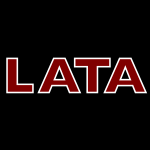 LATA-2015-BresolinMMSS #complexity #logic #on the
LATA-2015-BresolinMMSS #complexity #logic #on the- On the Complexity of Fragments of the Modal Logic of Allen’s Relations over Dense Structures (DB, DDM, AM, PS, GS), pp. 511–523.
 SEFM-2015-BeekDGMP #constraints #variability
SEFM-2015-BeekDGMP #constraints #variability- From Featured Transition Systems to Modal Transition Systems with Variability Constraints (MHtB, FD, SG, FM, LP), pp. 344–359.
 CHI-2015-AkshitaSILB #feedback #interactive #multimodal #towards #visual notation
CHI-2015-AkshitaSILB #feedback #interactive #multimodal #towards #visual notation- Towards Multimodal Affective Feedback: Interaction between Visual and Haptic Modalities (A, HAS, BI, EL, YB), pp. 2043–2052.
 ICEIS-v1-2015-VaroneA #multi #using
ICEIS-v1-2015-VaroneA #multi #using- Multi-modal Transportation with Public Transport and Ride-sharing — Multi-modal Transportation using a Path-based Method (SV, KA), pp. 479–486.
 ECIR-2015-MogadalaR #correlation #multi #retrieval
ECIR-2015-MogadalaR #correlation #multi #retrieval- Multi-modal Correlated Centroid Space for Multi-lingual Cross-Modal Retrieval (AM, AR), pp. 68–79.
 SIGIR-2015-MoranL
SIGIR-2015-MoranL- Regularised Cross-Modal Hashing (SM, VL), pp. 907–910.
 SIGIR-2015-WangLWZZ #learning #named
SIGIR-2015-WangLWZZ #learning #named- LBMCH: Learning Bridging Mapping for Cross-modal Hashing (YW, XL, LW, WZ, QZ), pp. 999–1002.
 MoDELS-2015-MannaSG #combinator #specification #testing
MoDELS-2015-MannaSG #combinator #specification #testing- Synthesizing tests for combinatorial coverage of modal scenario specifications (VPLM, IS, JG), pp. 126–135.
 SAC-2015-BrideJM #approximate #generative #testing
SAC-2015-BrideJM #approximate #generative #testing- Tri-modal under-approximation of event systems for test generation (HB, JJ, PAM), pp. 1737–1744.
 CSL-2015-KontinenMSV #semantics #theorem
CSL-2015-KontinenMSV #semantics #theorem- A Van Benthem Theorem for Modal Team Semantics (JK, JSM, HS, HV), pp. 277–291.
 CSL-2015-LehtinenQ
CSL-2015-LehtinenQ- Deciding the First Levels of the Modal μ Alternation Hierarchy by Formula Construction (KL, SQ), pp. 457–471.
 VLDB-2014-WangOYZZ #effectiveness #multi #retrieval
VLDB-2014-WangOYZZ #effectiveness #multi #retrieval- Effective Multi-Modal Retrieval based on Stacked Auto-Encoders (WW, BCO, XY, DZ, YZ), pp. 649–660.
 FM-2014-KrkaDMU
FM-2014-KrkaDMU- Revisiting Compatibility of Input-Output Modal Transition Systems (IK, ND, NM, SU), pp. 367–381.
 IFM-2014-BrideKP #constraints #specification #theorem proving #using #verification #workflow
IFM-2014-BrideKP #constraints #specification #theorem proving #using #verification #workflow- Verifying Modal Workflow Specifications Using Constraint Solving (HB, OK, FP), pp. 171–186.
 SEFM-2014-BianculliGK #logic #metric #pipes and filters #using
SEFM-2014-BianculliGK #logic #metric #pipes and filters #using- Trace Checking of Metric Temporal Logic with Aggregating Modalities Using MapReduce (DB, CG, SK), pp. 144–158.
 CHI-2014-McLachlanBB #interactive
CHI-2014-McLachlanBB #interactive- Transient and transitional states: pressure as an auxiliary input modality for bimanual interaction (RM, DB, SAB), pp. 401–410.
 CIKM-2014-XiePLW #framework #image #learning #multi
CIKM-2014-XiePLW #framework #image #learning #multi- A Cross-modal Multi-task Learning Framework for Image Annotation (LX, PP, YL, SW), pp. 431–440.
 CIKM-2014-ZhuSY #information retrieval #learning #taxonomy
CIKM-2014-ZhuSY #information retrieval #learning #taxonomy- Cross-Modality Submodular Dictionary Learning for Information Retrieval (FZ, LS, MY), pp. 1479–1488.
 ICPR-2014-JhuoL #detection #learning #multi #video
ICPR-2014-JhuoL #detection #learning #multi #video- Video Event Detection via Multi-modality Deep Learning (IHJ, DTL), pp. 666–671.
 ICPR-2014-LiuZC #identification #learning #metric #multi #parametricity
ICPR-2014-LiuZC #identification #learning #metric #multi #parametricity- Parametric Local Multi-modal Metric Learning for Person Re-identification (KL, ZCZ, AC), pp. 2578–2583.
 ICPR-2014-NguyenCO #multi #retrieval
ICPR-2014-NguyenCO #multi #retrieval- Multi-modal and Cross-Modal for Lecture Videos Retrieval (NVN, MC, JMO), pp. 2667–2672.
 ICPR-2014-QianZX #classification #multi #social
ICPR-2014-QianZX #classification #multi #social- Boosted Multi-modal Supervised Latent Dirichlet Allocation for Social Event Classification (SQ, TZ, CX), pp. 1999–2004.
 ICPR-2014-YangN #integration #learning #multi
ICPR-2014-YangN #integration #learning #multi- Semi-supervised Learning of Geospatial Objects through Multi-modal Data Integration (YY, SN), pp. 4062–4067.
 ICPR-2014-ZhangLWZ #image #modelling #multi #statistics #using
ICPR-2014-ZhangLWZ #image #modelling #multi #statistics #using- Statistical Modeling of Multi-modal Medical Image Fusion Method Using C-CHMM and M-PCNN (HZ, XL, XW, ZZ), pp. 1067–1072.
 SIGIR-2014-ZhouDG #semantics #similarity
SIGIR-2014-ZhouDG #semantics #similarity- Latent semantic sparse hashing for cross-modal similarity search (JZ, GD, YG), pp. 415–424.
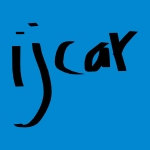 IJCAR-2014-NalonMD #confluence #logic
IJCAR-2014-NalonMD #confluence #logic- Clausal Resolution for Modal Logics of Confluence (CN, JM, CD), pp. 322–336.
 IJCAR-2014-Otten #first-order #logic #named #proving
IJCAR-2014-Otten #first-order #logic #named #proving- MleanCoP: A Connection Prover for First-Order Modal Logic (JO), pp. 269–276.
 IJCAR-2014-PapacchiniS #generative #logic
IJCAR-2014-PapacchiniS #generative #logic- Terminating Minimal Model Generation Procedures for Propositional Modal Logics (FP, RAS), pp. 381–395.
 LICS-CSL-2014-BojanczykDK #calculus #composition #model checking #theorem #μ-calculus
LICS-CSL-2014-BojanczykDK #calculus #composition #model checking #theorem #μ-calculus- Decomposition theorems and model-checking for the modal μ-calculus (MB, CD, SK), p. 10.
 ICDAR-2013-HassanCG #documentation #integration #multi #retrieval
ICDAR-2013-HassanCG #documentation #integration #multi #retrieval- Multi-modal Information Integration for Document Retrieval (EH, SC, MG), pp. 1200–1204.
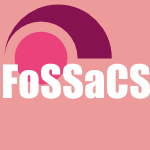 FoSSaCS-2013-Strassburger #logic
FoSSaCS-2013-Strassburger #logic- Cut Elimination in Nested Sequents for Intuitionistic Modal Logics (LS), pp. 209–224.
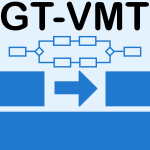 GT-VMT-2013-GreenyerBM #diagrams #sequence chart #specification
GT-VMT-2013-GreenyerBM #diagrams #sequence chart #specification- The ScenarioTools Play-Out of Modal Sequence Diagram Specifications with Environment Assumptions (JG, CB, VPLM).
 CHI-2013-WarnockMB #multi
CHI-2013-WarnockMB #multi- Multiple notification modalities and older users (DW, MRML, SAB), pp. 1091–1094.
 DHM-SET-2013-MurataKH #effectiveness #multi
DHM-SET-2013-MurataKH #effectiveness #multi- Effectiveness of Automotive Warning System Presented with Multiple Sensory Modalities (AM, MK, TH), pp. 88–97.
 DUXU-CXC-2013-LawrenceMPFSB #interactive #using #visualisation
DUXU-CXC-2013-LawrenceMPFSB #interactive #using #visualisation- Investigation of Interaction Modalities Designed for Immersive Visualizations Using Commodity Devices in the Classroom (KL, AM, NP, TF, JS, AUB), pp. 209–218.
 HCI-III-2013-SiegertBW #multi
HCI-III-2013-SiegertBW #multi- The Influence of Context Knowledge for Multi-modal Affective Annotation (IS, RB, AW), pp. 381–390.
 HCI-IMT-2013-GalatasPM #artificial reality #distance #multi #recognition #robust #speech #video
HCI-IMT-2013-GalatasPM #artificial reality #distance #multi #recognition #robust #speech #video- Robust Multi-Modal Speech Recognition in Two Languages Utilizing Video and Distance Information from the Kinect (GG, GP, FM), pp. 43–48.
 HIMI-LCCB-2013-AehneltBRKUK #interactive #multi #smarttech
HIMI-LCCB-2013-AehneltBRKUK #interactive #multi #smarttech- Situation Aware Interaction with Multi-modal Business Applications in Smart Environments (MA, SB, GR, FK, BU, TK), pp. 413–422.
 SIGIR-2013-LuWTZHZ #rank #ranking #scalability
SIGIR-2013-LuWTZHZ #rank #ranking #scalability- A low rank structural large margin method for cross-modal ranking (XL, FW, ST, ZZ, XH, YZ), pp. 433–442.
 QAPL-2013-HanKKG #probability #specification
QAPL-2013-HanKKG #probability #specification- Modal Specifications for Probabilistic Timed Systems (TH, CK, MZK, HG), pp. 66–80.
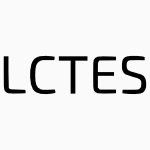 LCTES-2013-GeunsHB #automation #data flow #realtime
LCTES-2013-GeunsHB #automation #data flow #realtime- Automatic dataflow model extraction from modal real-time stream processing applications (SJG, JPHMH, MJGB), pp. 143–152.
 CADE-2013-KaminskiT #incremental #named #reasoning #reduction #satisfiability
CADE-2013-KaminskiT #incremental #named #reasoning #reduction #satisfiability- InKreSAT: Modal Reasoning via Incremental Reduction to SAT (MK, TT), pp. 436–442.
 CSL-2013-AfshariL #calculus #on the #μ-calculus
CSL-2013-AfshariL #calculus #on the #μ-calculus- On closure ordinals for the modal μ-calculus (BA, GEL), pp. 30–44.
 CSL-2013-Kuusisto #automaton #distributed #logic #message passing
CSL-2013-Kuusisto #automaton #distributed #logic #message passing- Modal Logic and Distributed Message Passing Automata (AK), pp. 452–468.
 CSL-2013-MichaliszynO #logic #transitive
CSL-2013-MichaliszynO #logic #transitive- Elementary Modal Logics over Transitive Structures (JM, JO), pp. 563–577.
 LICS-2013-FacchiniVZ #calculus #theorem #μ-calculus
LICS-2013-FacchiniVZ #calculus #theorem #μ-calculus- A Characterization Theorem for the Alternation-Free Fragment of the Modal μ-Calculus (AF, YV, FZ), pp. 478–487.
 LICS-2013-JungR #logic #semantics
LICS-2013-JungR #logic #semantics- Kripke Semantics for Modal Bilattice Logic (AJ, UR), pp. 438–447.
 LICS-2013-Lahav #logic
LICS-2013-Lahav #logic- From Frame Properties to Hypersequent Rules in Modal Logics (OL), pp. 408–417.
 FASE-2012-BradfieldS #calculus #qvt #recursion #μ-calculus
FASE-2012-BradfieldS #calculus #qvt #recursion #μ-calculus- Recursive Checkonly QVT-R Transformations with General when and where Clauses via the Modal μ Calculus (JCB, PS), pp. 194–208.
 FM-2012-DIppolitoBPU #problem
FM-2012-DIppolitoBPU #problem- The Modal Transition System Control Problem (ND, VAB, NP, SU), pp. 155–170.
 FM-2012-SibayUBK
FM-2012-SibayUBK- Distribution of Modal Transition Systems (GES, SU, VAB, JK), pp. 403–417.
 ICGT-2012-Vandin #specification #verification
ICGT-2012-Vandin #specification #verification- Specification and Verification of Modal Properties for Structured Systems (AV), pp. 423–425.
 ECIR-2012-MantrachR12a #multi #query #using
ECIR-2012-MantrachR12a #multi #query #using- A Mailbox Search Engine Using Query Multi-modal Expansion and Community-Based Smoothing (AM, JMR), pp. 576–577.
 ICPR-2012-GaoM #analysis #canonical #correlation #detection #kernel #multi #using
ICPR-2012-GaoM #analysis #canonical #correlation #detection #kernel #multi #using- Multi-modality movie scene detection using Kernel Canonical Correlation Analysis (GG, HM), pp. 3074–3077.
 ICPR-2012-GlodekSPS #classification #markov #multi #network #using
ICPR-2012-GlodekSPS #classification #markov #multi #network #using- Multi-modal Fusion based on classifiers using reject options and Markov Fusion Networks (MG, MS, GP, FS), pp. 1084–1087.
 ICPR-2012-HuangLT #invariant #learning #recognition
ICPR-2012-HuangLT #invariant #learning #recognition- Learning modality-invariant features for heterogeneous face recognition (LH, JL, YPT), pp. 1683–1686.
 ICPR-2012-MotlicekSWMM #authentication #mobile #modelling #using #variability
ICPR-2012-MotlicekSWMM #authentication #mobile #modelling #using #variability- Bi-modal authentication in mobile environments using session variability modelling (PM, LES, RW, CM, SM), pp. 1100–1103.
 ICPR-2012-NguyenPRPV #detection #multi #segmentation #video
ICPR-2012-NguyenPRPV #detection #multi #segmentation #video- Multi-modal abnormality detection in video with unknown data segmentation (TVN, DQP, SR, DSP, SV), pp. 1322–1325.
 ICPR-2012-NguyenVC #multi #recognition #using
ICPR-2012-NguyenVC #multi #recognition #using- Face recognition using Multi-modal Binary Patterns (TPN, NSV, AC), pp. 2343–2346.
 ICPR-2012-San-BiagioUCCCM #approach #classification #kernel #learning #multi
ICPR-2012-San-BiagioUCCCM #approach #classification #kernel #learning #multi- A multiple kernel learning approach to multi-modal pedestrian classification (MSB, AU, MC, MC, UC, VM), pp. 2412–2415.
 ICPR-2012-YuCQW #correlation #multi #retrieval #topic
ICPR-2012-YuCQW #correlation #multi #retrieval #topic- Cross-modal topic correlations for multimedia retrieval (JY, YC, ZQ, TW), pp. 246–249.
 KDD-2012-YuanWTNY #analysis #learning #multi
KDD-2012-YuanWTNY #analysis #learning #multi- Multi-source learning for joint analysis of incomplete multi-modality neuroimaging data (LY, YW, PMT, VAN, JY), pp. 1149–1157.
 KR-2012-LakemeyerL #logic
KR-2012-LakemeyerL #logic- Only-Knowing Meets Nonmonotonic Modal Logic (GL, HJL).
 SEKE-2012-Cao #logic #refinement
SEKE-2012-Cao #logic #refinement- Modal ZIA, Modal Refinement Relation and Logical Characterization (ZC), pp. 525–530.
 IJCAR-2012-RathsO #first-order #library #logic #problem
IJCAR-2012-RathsO #first-order #library #logic #problem- The QMLTP Problem Library for First-Order Modal Logics (TR, JO), pp. 454–461.
 LICS-2012-GargGN #calculus #logic #multi
LICS-2012-GargGN #calculus #logic #multi- Countermodels from Sequent Calculi in Multi-Modal Logics (DG, VG, SN), pp. 315–324.
 LICS-2012-GollerJL #complexity #first-order
LICS-2012-GollerJL #complexity #first-order- The Complexity of Decomposing Modal and First-Order Theories (SG, JCJ, ML), pp. 325–334.
 LICS-2012-MichaliszynO #decidability #logic
LICS-2012-MichaliszynO #decidability #logic- Decidable Elementary Modal Logics (JM, JO), pp. 491–500.
 FoSSaCS-2011-Mio #calculus #independence #probability #μ-calculus
FoSSaCS-2011-Mio #calculus #independence #probability #μ-calculus- Probabilistic Modal μ-Calculus with Independent Product (MM), pp. 290–304.
 CHI-2011-BrumbyDJG #how #performance
CHI-2011-BrumbyDJG #how #performance- Fast or safe?: how performance objectives determine modality output choices while interacting on the move (DPB, SCED, CPJ, JJG), pp. 473–482.
 CHI-2011-NarumiNKTH #artificial reality #interactive
CHI-2011-NarumiNKTH #artificial reality #interactive- Augmented reality flavors: gustatory display based on edible marker and cross-modal interaction (TN, SN, TK, TT, MH), pp. 93–102.
 CHI-2011-PazminoL #case study #mobile
CHI-2011-PazminoL #case study #mobile- An exploratory study of input modalities for mobile devices used with museum exhibits (PJP, LL), pp. 895–904.
 HCI-ITE-2011-KarpovRK #multi #recognition #speech #user interface
HCI-ITE-2011-KarpovRK #multi #recognition #speech #user interface- An Assistive Bi-modal User Interface Integrating Multi-channel Speech Recognition and Computer Vision (AK, AR, ISK), pp. 454–463.
 HCI-ITE-2011-TanakaMK #case study #human-computer #interactive #interface #multi
HCI-ITE-2011-TanakaMK #case study #human-computer #interactive #interface #multi- Experimental Study on Appropriate Reality of Agents as a Multi-modal Interface for Human-Computer Interaction (KT, TM, KK), pp. 613–622.
 CIKM-2011-StuparM #automation #multi #named
CIKM-2011-StuparM #automation #multi #named- PICASSO: automated soundtrack suggestion for multi-modal data (AS, SM), pp. 2589–2592.
 ECIR-2011-ShiLH #collaboration #multi #ranking #self
ECIR-2011-ShiLH #collaboration #multi #ranking #self- Reranking Collaborative Filtering with Multiple Self-contained Modalities (YS, ML, AH), pp. 699–703.
 RecSys-2011-SymeonidisTM #multi #network #predict #rating #recommendation #social
RecSys-2011-SymeonidisTM #multi #network #predict #rating #recommendation #social- Product recommendation and rating prediction based on multi-modal social networks (PS, ET, YM), pp. 61–68.
 ECOOP-2011-MaozRR11a #diagrams
ECOOP-2011-MaozRR11a #diagrams- Modal Object Diagrams (SM, JOR, BR), pp. 281–305.
 ICLP-2011-AlrajehKRU #approach #induction #refinement
ICLP-2011-AlrajehKRU #approach #induction #refinement- An Inductive Approach for Modal Transition System Refinement (DA, JK, AR, SU), pp. 106–116.
 FoSSaCS-2010-CateF #calculus #finite #proving #μ-calculus
FoSSaCS-2010-CateF #calculus #finite #proving #μ-calculus- An Easy Completeness Proof for the Modal μ-Calculus on Finite Trees (BtC, GF), pp. 161–175.
 FoSSaCS-2010-NielsonN #logic #model checking #static analysis
FoSSaCS-2010-NielsonN #logic #model checking #static analysis- Model Checking Is Static Analysis of Modal Logic (FN, HRN), pp. 191–205.
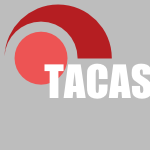 TACAS-2010-BauerMSH #on the #refinement
TACAS-2010-BauerMSH #on the #refinement- On Weak Modal Compatibility, Refinement, and the MIO Workbench (SSB, PM, AS, RH), pp. 175–189.
 ICALP-v2-2010-AchilleosLM #satisfiability
ICALP-v2-2010-AchilleosLM #satisfiability- Parameterized Modal Satisfiability (AA, ML, VM), pp. 369–380.
 ICALP-v2-2010-MontanariPS #decidability #logic
ICALP-v2-2010-MontanariPS #decidability #logic- Maximal Decidable Fragments of Halpern and Shoham’s Modal Logic of Intervals (AM, GP, PS), pp. 345–356.
 LATA-2010-Lin #calculus #complexity
LATA-2010-Lin #calculus #complexity- Modal Nonassociative Lambek Calculus with Assumptions: Complexity and Context-Freeness (ZL0), pp. 414–425.
 CIKM-2010-LiLZL #multi #retrieval
CIKM-2010-LiLZL #multi #retrieval- Multi-modal multi-correlation person-centric news retrieval (ZL, JL, XZ, HL), pp. 179–188.
 ICPR-2010-BasakKTR #approach #identification #multi
ICPR-2010-BasakKTR #approach #identification #multi- A Gradient Descent Approach for Multi-modal Biometric Identification (JB, KK, VT, NKR), pp. 1322–1325.
 ICPR-2010-GajsekSM #canonical #correlation #multi #recognition #using
ICPR-2010-GajsekSM #canonical #correlation #multi #recognition #using- Multi-modal Emotion Recognition Using Canonical Correlations and Acoustic Features (RG, VS, FM), pp. 4133–4136.
 ICPR-2010-PastorTCV #corpus
ICPR-2010-PastorTCV #corpus- A Bi-modal Handwritten Text Corpus: Baseline Results (MP, AHT, FC, EV), pp. 1933–1936.
 ICPR-2010-WilliamsTSB #analysis #multi #verification
ICPR-2010-WilliamsTSB #analysis #multi #verification- Body Motion Analysis for Multi-modal Identity Verification (GW, GWT, KS, CB), pp. 2198–2201.
 KDIR-2010-GabrielSN #clustering #folksonomy #named #process
KDIR-2010-GabrielSN #clustering #folksonomy #named #process- Crosssense — Sensemaking in a Folksonomy with Cross-modal Clustering over Content and User Activities (HHG, MS, AN), pp. 100–111.
 KDIR-2010-OzekiKT #analysis #multi #network
KDIR-2010-OzekiKT #analysis #multi #network- Multi-modal Analysis of Complex Network — Point Stimulus Response Depending on Its Location in the Network (TO, TK, YT), pp. 226–231.
 SIGIR-2010-FengCCZL #multi #query #video #web
SIGIR-2010-FengCCZL #multi #query #video #web- Multi-modal query expansion for web video search (BF, JC, ZC, YZ, SL), pp. 721–722.
 POPL-2010-DreyerNRB #data type #higher-order #logic #relational
POPL-2010-DreyerNRB #data type #higher-order #logic #relational- A relational modal logic for higher-order stateful ADTs (DD, GN, AR, LB), pp. 185–198.
 CSL-2010-LohmannV #complexity #dependence #logic
CSL-2010-LohmannV #complexity #dependence #logic- Complexity Results for Modal Dependence Logic (PL, HV), pp. 411–425.
 ICDAR-2009-TonazziniBS #multi
ICDAR-2009-TonazziniBS #multi- Registration and Enhancement of Double-Sided Degraded Manuscripts Acquired in Multispectral Modality (AT, GB, ES), pp. 546–550.
 ICALP-v2-2009-KobayashiO #calculus #complexity #model checking #recursion #μ-calculus
ICALP-v2-2009-KobayashiO #calculus #complexity #model checking #recursion #μ-calculus- Complexity of Model Checking Recursion Schemes for Fragments of the Modal μ-Calculus (NK, CHLO), pp. 223–234.
 ICALP-v2-2009-MelliesTT #exponential #linear #logic
ICALP-v2-2009-MelliesTT #exponential #linear #logic- An Explicit Formula for the Free Exponential Modality of Linear Logic (PAM, NT, CT), pp. 247–260.
 LATA-2009-BertrandPR #consistency #refinement #specification
LATA-2009-BertrandPR #consistency #refinement #specification- Refinement and Consistency of Timed Modal Specifications (NB, SP, JBR), pp. 152–163.
 SEFM-2009-GoesslerR #component #contract #design
SEFM-2009-GoesslerR #component #contract #design- Modal Contracts for Component-Based Design (GG, JBR), pp. 295–303.
 CHI-2009-HogganCBK #feedback #question
CHI-2009-HogganCBK #feedback #question- Audio or tactile feedback: which modality when? (EEH, AC, SAB, TK), pp. 2253–2256.
 DHM-2009-PaolisPA #interactive #modelling #visualisation
DHM-2009-PaolisPA #interactive #modelling #visualisation- An Advanced Modality of Visualization and Interaction with Virtual Models of the Human Body (LTDP, MP, GA), pp. 13–18.
 HCI-NIMT-2009-KitamuraSYFIK #interface #multi
HCI-NIMT-2009-KitamuraSYFIK #interface #multi- Multi-modal Interface in Multi-Display Environment for Multi-users (YK, SS, TY, RF, YI, FK), pp. 66–74.
 HCI-NIMT-2009-Schalk #human-computer
HCI-NIMT-2009-Schalk #human-computer- Sensor Modalities for Brain-Computer Interfacing (GS), pp. 616–622.
 ICEIS-J-2009-MuellerTZ #architecture #multi #scalability
ICEIS-J-2009-MuellerTZ #architecture #multi #scalability- A Scalable Parametric-RBAC Architecture for the Propagation of a Multi-modality, Multi-resource Informatics System (RM, VAT, GQZ), pp. 114–124.
 CIKM-2009-KobayakawaKTOKT #analysis #classification #kernel #using
CIKM-2009-KobayakawaKTOKT #analysis #classification #kernel #using- Opinion classification with tree kernel SVM using linguistic modality analysis (TSK, TK, HT, NO, JDK, JT), pp. 1791–1794.
 LICS-2009-KazakovP #complexity #logic #problem #satisfiability
LICS-2009-KazakovP #complexity #logic #problem #satisfiability- A Note on the Complexity of the Satisfiability Problem for Graded Modal Logics (YK, IPH), pp. 407–416.
 LICS-2009-KobayashiO #calculus #higher-order #model checking #recursion #type system #μ-calculus
LICS-2009-KobayashiO #calculus #higher-order #model checking #recursion #type system #μ-calculus- A Type System Equivalent to the Modal μ-Calculus Model Checking of Higher-Order Recursion Schemes (NK, CHLO), pp. 179–188.
 ASE-2008-DIppolitoFCU #named
ASE-2008-DIppolitoFCU #named- MTSA: The Modal Transition System Analyser (ND, DF, MC, SU), pp. 475–476.
 VLDB-2008-GuoLFX #database #multi #named #query
VLDB-2008-GuoLFX #database #multi #named #query- C-DEM: a multi-modal query system for Drosophila Embryo databases (FG, LL, CF, EPX), pp. 1508–1511.
 FoSSaCS-2008-AntonikHLNW #complexity #problem #specification
FoSSaCS-2008-AntonikHLNW #complexity #problem #specification- Complexity of Decision Problems for Mixed and Modal Specifications (AA, MH, KGL, UN, AW), pp. 112–126.
 FoSSaCS-2008-GargA #data access #logic
FoSSaCS-2008-GargA #data access #logic- A Modal Deconstruction of Access Control Logics (DG, MA), pp. 216–230.
 SAS-2008-NanzNN #abstraction #behaviour #concurrent
SAS-2008-NanzNN #abstraction #behaviour #concurrent- Modal Abstractions of Concurrent Behaviour (SN, FN, HRN), pp. 159–173.
 ICALP-B-2008-BergerHY #abstraction #logic #mobile #process
ICALP-B-2008-BergerHY #abstraction #logic #mobile #process- Completeness and Logical Full Abstraction in Modal Logics for Typed Mobile Processes (MB, KH, NY), pp. 99–111.
 ICGT-2008-BauerBKR #abstraction #graph
ICGT-2008-BauerBKR #abstraction #graph- A Modal-Logic Based Graph Abstraction (JB, IB, MEK, AR), pp. 321–335.
 ECIR-2008-StathopoulosUJ #automation #graph #image #multi #semantics
ECIR-2008-StathopoulosUJ #automation #graph #image #multi #semantics- Semantic Relationships in Multi-modal Graphs for Automatic Image Annotation (VS, JU, JMJ), pp. 490–497.
 ICPR-2008-KonKAT #adaptation #detection #interactive #realtime #using
ICPR-2008-KonKAT #adaptation #detection #interactive #realtime #using- Adaptive habituation detection to build human computer interactive systems using a real-time cross-modal computation (MK, TK, KA, HT), pp. 1–4.
 ICPR-2008-VajariaSK #multi #retrieval #using
ICPR-2008-VajariaSK #multi #retrieval #using- Clip retrieval using multi-modal biometrics in meeting archives (HV, SS, RK), pp. 1–4.
 KR-2008-KellyP #calculus
KR-2008-KellyP #calculus- Complex Epistemic Modalities in the Situation Calculus (RFK, ARP), pp. 611–620.
 SAC-2008-AntoniouDG #reasoning
SAC-2008-AntoniouDG #reasoning- A system for modal and deontic defeasible reasoning (GA, ND, GG), pp. 2261–2265.
 IJCAR-2008-KaminskiS #difference #hybrid #logic
IJCAR-2008-KaminskiS #difference #hybrid #logic- Terminating Tableaux for Hybrid Logic with the Difference Modality and Converse (MK, GS), pp. 210–225.
 IJCAR-2008-SchmidtT #first-order #logic
IJCAR-2008-SchmidtT #first-order #logic- A General Tableau Method for Deciding Description Logics, Modal Logics and Related First-Order Fragments (RAS, DT), pp. 194–209.
 ASE-2007-LoMK #execution #mining #specification
ASE-2007-LoMK #execution #mining #specification- Mining modal scenario-based specifications from execution traces of reactive systems (DL, SM, SCK), pp. 465–468.
 CASE-2007-RuppelLZS #adaptation #generative
CASE-2007-RuppelLZS #adaptation #generative- Modal Trajectory Generation for Adaptive Secondary Mirrors in Astronomical Adaptive Optics (TR, MLH, DZ, OS), pp. 430–435.
 VLDB-2007-WuYGHABFGGLW #challenge #experience #monitoring #multi #prototype
VLDB-2007-WuYGHABFGGLW #challenge #experience #monitoring #multi #prototype- Challenges and Experience in Prototyping a Multi-Modal Stream Analytic and Monitoring Application on System S (KLW, PSY, BG, KH, CCA, EB, WF, DG, XG, GL, HW), pp. 1185–1196.
 ESOP-2007-LarsenNW #automaton #interface #product line
ESOP-2007-LarsenNW #automaton #interface #product line- Modal I/O Automata for Interface and Product Line Theories (KGL, UN, AW), pp. 64–79.
 FASE-2007-HarelKM #compilation #diagrams #multi #named #sequence chart #uml
FASE-2007-HarelKM #compilation #diagrams #multi #named #sequence chart #uml- S2A: A Compiler for Multi-modal UML Sequence Diagrams (DH, AK, SM), pp. 121–124.
 ICALP-2007-SchroderP #algorithm #composition #logic
ICALP-2007-SchroderP #algorithm #composition #logic- Modular Algorithms for Heterogeneous Modal Logics (LS, DP), pp. 459–471.
 HCI-IDU-2007-DuarteCG #interface #usability #visual notation
HCI-IDU-2007-DuarteCG #interface #usability #visual notation- Evaluating Usability Improvements by Combining Visual and Audio Modalities in the Interface (CD, LC, NG), pp. 428–437.
 HCI-IPT-2007-ParkHS #design #effectiveness #multi
HCI-IPT-2007-ParkHS #design #effectiveness #multi- To Effective Multi-modal Design for Ringtones, Ringback Tones and Vibration of Cell Phones (TP, WH, GS), pp. 429–437.
 HCI-MIE-2007-YangCZJ #flexibility #interactive #multi #user interface
HCI-MIE-2007-YangCZJ #flexibility #interactive #multi #user interface- Flexible Multi-modal Interaction Technologies and User Interface Specially Designed for Chinese Car Infotainment System (CY, NC, PfZ, ZJ), pp. 243–252.
 CAiSE-2007-Guizzardi #aspect-oriented
CAiSE-2007-Guizzardi #aspect-oriented- Modal Aspects of Object Types and Part-Whole Relations and the de re/de dicto Distinction (GG), pp. 5–20.
 ECIR-2007-MartinetS #documentation #using
ECIR-2007-MartinetS #documentation #using- Using Visual-Textual Mutual Information and Entropy for Inter-modal Document Indexing (JM, SS), pp. 549–556.
 POPL-2007-AppelMRV #type system
POPL-2007-AppelMRV #type system- A very modal model of a modern, major, general type system (AWA, PAM, CDR, JV), pp. 109–122.
 POPL-2007-CalcagnoGZ #logic #parametricity
POPL-2007-CalcagnoGZ #logic #parametricity- Context logic as modal logic: completeness and parametric inexpressivity (CC, PG, UZ), pp. 123–134.
 CADE-2007-HeilalaP #bidirectional #logic
CADE-2007-HeilalaP #bidirectional #logic- Bidirectional Decision Procedures for the Intuitionistic Propositional Modal Logic IS4 (SH, BP), pp. 116–131.
 LICS-2007-JurdzinskiL #calculus #μ-calculus
LICS-2007-JurdzinskiL #calculus #μ-calculus- Alternation-free modal μ-calculus for data trees (MJ, RL), pp. 131–140.
 LICS-2007-Klin #algebra #logic #semantics
LICS-2007-Klin #algebra #logic #semantics- Bialgebraic Operational Semantics and Modal Logic (BK), pp. 336–345.
 LICS-2007-MelliesT #game studies #semantics
LICS-2007-MelliesT #game studies #semantics- Resource modalities in game semantics (PAM, NT), pp. 389–398.
 FoSSaCS-2006-Schroder #algebra #finite #logic
FoSSaCS-2006-Schroder #algebra #finite #logic- A Finite Model Construction for Coalgebraic Modal Logic (LS), pp. 157–171.
 ICEIS-HCI-2006-FrangeskidesL #interactive #multi #prototype #type system
ICEIS-HCI-2006-FrangeskidesL #interactive #multi #prototype #type system- Multi-Modal Hands-Free Human Computer Interaction: A Prototype System (FF, AL), pp. 19–26.
 ICEIS-J-2006-FrangeskidesL06a #interactive #multi
ICEIS-J-2006-FrangeskidesL06a #interactive #multi- Multi-modal Contact-Less Human Computer Interaction (FF, AL), pp. 405–419.
 ICPR-v1-2006-TongJ #multi #probability
ICPR-v1-2006-TongJ #multi #probability- Multiview Facial Feature Tracking with a Multi-modal Probabilistic Model (YT, QJ), pp. 307–310.
 ICPR-v2-2006-KimK06b #estimation #graph #modelling #monte carlo #multi #online
ICPR-v2-2006-KimK06b #estimation #graph #modelling #monte carlo #multi #online- Multi-modal Sequential Monte Carlo for On-Line Hierarchical Graph Structure Estimation in Model-based Scene Interpretation (SK, ISK), pp. 251–254.
 ICPR-v3-2006-GuoL #image #multi #using
ICPR-v3-2006-GuoL #image #multi #using- Multi-modality Image Registration Using Mutual Information Based on Gradient Vector Flow (YG, CCL), pp. 697–700.
 ICPR-v3-2006-XueD #2d #3d #locality #multi #using
ICPR-v3-2006-XueD #2d #3d #locality #multi #using- 3D+2D Face Localization Using Boosting in Multi-Modal Feature Space (FX, XD), pp. 499–502.
 ICPR-v4-2006-FriguiC #image #multi
ICPR-v4-2006-FriguiC #image #multi- Building a Multi-Modal Thesaurus from Annotated Images (HF, JC), pp. 198–201.
 PPDP-2006-YuseI #generative #multi #persistent #type system
PPDP-2006-YuseI #generative #multi #persistent #type system- A modal type system for multi-level generating extensions with persistent code (YY, AI), pp. 201–212.
 POPL-2006-KimYC #multi #polymorphism #type system
POPL-2006-KimYC #multi #polymorphism #type system- A polymorphic modal type system for lisp-like multi-staged languages (ISK, KY, CC), pp. 257–268.
 FSE-2006-MaozH #aspectj #compilation #multi
FSE-2006-MaozH #aspectj #compilation #multi- From multi-modal scenarios to code: compiling LSCs into aspectJ (SM, DH), pp. 219–230.
 IJCAR-2006-DemriL #logic
IJCAR-2006-DemriL #logic- Presburger Modal Logic Is PSPACE-Complete (SD, DL), pp. 541–556.
 LICS-2006-Leivant #logic #proving #reasoning #source code
LICS-2006-Leivant #logic #proving #reasoning #source code- Matching Explicit and Modal Reasoning about Programs: A Proof Theoretic Delineation of Dynamic Logic (DL), pp. 157–168.
 LICS-2006-SchroderP #bound #logic
LICS-2006-SchroderP #bound #logic- PSPACE Bounds for Rank-1 Modal Logics (LS, DP), pp. 231–242.
 SAT-2006-SebastianiV #case study #encoding #logic #satisfiability
SAT-2006-SebastianiV #case study #encoding #logic #satisfiability- Encoding the Satisfiability of Modal and Description Logics into SAT: The Case Study of K(m)/ALC (RS, MV), pp. 130–135.
 FoSSaCS-2005-Schroder #algebra #logic
FoSSaCS-2005-Schroder #algebra #logic- Expressivity of Coalgebraic Modal Logic: The Limits and Beyond (LS), pp. 440–454.
 CHI-2005-BaudischCHE #named
CHI-2005-BaudischCHE #named- Snap-and-go: helping users align objects without the modality of traditional snapping (PB, EC, KH, AE), pp. 301–310.
 CSL-2005-VIICH #control flow #distributed #logic
CSL-2005-VIICH #control flow #distributed #logic- Distributed Control Flow with Classical Modal Logic (TMV, KC, RH), pp. 51–69.
 LICS-2005-DawarO #theorem
LICS-2005-DawarO #theorem- Modal Characterisation Theorems over Special Classes of Frames (AD, MO), pp. 21–30.
 ESOP-2004-JiaW #distributed #proving #source code
ESOP-2004-JiaW #distributed #proving #source code- Modal Proofs as Distributed Programs (Extended Abstract) (LJ, DW), pp. 219–233.
 CIKM-2004-MekhaldiLI #clustering #documentation #speech #using
CIKM-2004-MekhaldiLI #clustering #documentation #speech #using- Using bi-modal alignment and clustering techniques for documents and speech thematic segmentations (DM, DL, RI), pp. 69–77.
 ICPR-v3-2004-KapoorPI #detection #multi #probability
ICPR-v3-2004-KapoorPI #detection #multi #probability- Probabilistic Combination of Multiple Modalities to Detect Interest (AK, RWP, YI), pp. 969–972.
 KDD-2004-PanYFD #automation #correlation #multi
KDD-2004-PanYFD #automation #correlation #multi- Automatic multimedia cross-modal correlation discovery (JYP, HJY, CF, PD), pp. 653–658.
 ICLP-2004-Nguyen #logic programming #named #prolog
ICLP-2004-Nguyen #logic programming #named #prolog- MProlog: An Extension of Prolog for Modal Logic Programming (LAN), pp. 469–470.
 IJCAR-2004-BaaderGT #decidability #logic #problem #word
IJCAR-2004-BaaderGT #decidability #logic #problem #word- A New Combination Procedure for the Word Problem That Generalizes Fusion Decidability Results in Modal Logics (FB, SG, CT), pp. 183–197.
 LICS-2004-VIICHP #distributed #symmetry #λ-calculus
LICS-2004-VIICHP #distributed #symmetry #λ-calculus- A Symmetric Modal λ Calculus for Distributed Computing (TMV, KC, RH, FP), pp. 286–295.
 PPDP-2003-Nanevski
PPDP-2003-Nanevski- From dynamic binding to state via modal possibility (AN), pp. 207–218.
 CADE-2003-PanV #optimisation
CADE-2003-PanV #optimisation- Optimizing a BDD-Based Modal Solver (GP, MYV), pp. 75–89.
 CADE-2003-SchmidtH #axiom #first-order
CADE-2003-SchmidtH #axiom #first-order- A Principle for Incorporating Axioms into the First-Order Translation of Modal Formulae (RAS, UH), pp. 412–426.
 CSL-2003-MaksimovaV #calculus #complexity #problem
CSL-2003-MaksimovaV #calculus #complexity #problem- Complexity of Some Problems in Modal and Intuitionistic Calculi (LM, AV), pp. 397–412.
 TACAS-2002-Mateescu #calculus #lts #model checking #μ-calculus
TACAS-2002-Mateescu #calculus #lts #model checking #μ-calculus- Local Model-Checking of Modal μ-Calculus on Acyclic Labeled Transition Systems (RM), pp. 281–295.
 ICPR-v1-2002-CarcassoniRH #analysis #recognition
ICPR-v1-2002-CarcassoniRH #analysis #recognition- Texture Recognition through Modal Analysis of Spectral Peak Patterns (MC, ER, ERH), pp. 243–246.
 CSL-2002-BerwangerGL #calculus #on the #μ-calculus
CSL-2002-BerwangerGL #calculus #on the #μ-calculus- On the Variable Hierarchy of the Modal μ-Calculus (DB, EG, GL), pp. 352–366.
 LICS-2002-Bars #logic #satisfiability
LICS-2002-Bars #logic #satisfiability- The 0-1 law fails for frame satisfiability of propositional modal logic (JMLB), pp. 225–234.
 LICS-2002-Otto #finite #theorem
LICS-2002-Otto #finite #theorem- Modal and Guarded Characterisation Theorems over Finite Transition Systems (MO), p. 371–?.
 VMCAI-2002-Huth #model checking #using
VMCAI-2002-Huth #model checking #using- Model Checking Modal Transition Systems Using Kripke Structures (MH), pp. 302–316.
 ESOP-2001-HuthJS #program analysis
ESOP-2001-HuthJS #program analysis- Modal Transition Systems: A Foundation for Three-Valued Program Analysis (MH, RJ, DAS), pp. 155–169.
 ICSM-2001-DemestichaGKMPSS #aspect-oriented #design #implementation #information management #multi
ICSM-2001-DemestichaGKMPSS #aspect-oriented #design #implementation #information management #multi- Aspects of Design and Implementation of a Multi-Channel and Multi-Modal Information System (VD, JG, JK, MM, LP, HS, LS), pp. 312–319.
 ICEIS-v1-2001-PanticR #challenge #monitoring #multi #ubiquitous
ICEIS-v1-2001-PanticR #challenge #monitoring #multi #ubiquitous- Affect-Sensitive Multi-Modal Monitoring in Ubiquitous Computing: Advances and Challenges (MP, LJMR), pp. 466–474.
 CSL-2001-AlechinaMPR #category theory #logic #semantics
CSL-2001-AlechinaMPR #category theory #logic #semantics- Categorical and Kripke Semantics for Constructive S4 Modal Logic (NA, MM, VdP, ER), pp. 292–307.
 CSL-2001-DawarGK #fixpoint #logic
CSL-2001-DawarGK #fixpoint #logic- Inflationary Fixed Points in Modal Logic (AD, EG, SK), pp. 277–291.
 CSL-2001-LutzSW #logic
CSL-2001-LutzSW #logic- Modal Logic and the Two-Variable Fragment (CL, US, FW), pp. 247–261.
 IJCAR-2001-BaaderT #approach #automaton #satisfiability
IJCAR-2001-BaaderT #approach #automaton #satisfiability- The Inverse Method Implements the Automata Approach for Modal Satisfiability (FB, ST), pp. 92–106.
 IJCAR-2001-BeckertS #calculus #first-order #logic
IJCAR-2001-BeckertS #calculus #first-order #logic- A Sequent Calculus for First-Order Dynamic Logic with Trace Modalities (BB, SS), pp. 626–641.
 IJCAR-2001-CerritoM #logic #quantifier
IJCAR-2001-CerritoM #logic #quantifier- Free-Variable Tableaux for Constant-Domain Quantified Modal Logics with Rigid and Non-rigid Designation (SC, MCM), pp. 137–151.
 IJCAR-2001-CerroFGHLM #logic #proving
IJCAR-2001-CerroFGHLM #logic #proving- Lotrec : The Generic Tableau Prover for Modal and Description Logics (LFdC, DF, OG, AH, DL, FM), pp. 453–458.
 IJCAR-2001-Patel-SchneiderS #generative #random
IJCAR-2001-Patel-SchneiderS #generative #random- A New System and Methodology for Generating Random Modal Formulae (PFPS, RS), pp. 464–468.
 LICS-2001-Pfenning #proving #type system
LICS-2001-Pfenning #proving #type system- Intensionality, Extensionality, and Proof Irrelevance in Modal Type Theory (FP), pp. 221–230.
 ITiCSE-2000-ChongS #chat #coordination #interactive #multi
ITiCSE-2000-ChongS #chat #coordination #interactive #multi- A multi-modal chat for coordinated interaction (poster session) (NSTC, MS), p. 187.
 WRLA-2000-Pattinson #logic
WRLA-2000-Pattinson #logic- Modal Logic for Rewriting Theories (DP), pp. 175–193.
 CHI-2000-JensenFDK #communication #online
CHI-2000-JensenFDK #communication #online- The effect of communication modality on cooperation in online environments (CJ, SF, SMD, PK), pp. 470–477.
 ICPR-v2-2000-ArtieresMGD #modelling #multi #online #recognition
ICPR-v2-2000-ArtieresMGD #modelling #multi #online #recognition- Multi-Modal Segmental Models for On-Line Handwriting Recognition (TA, JMM, PG, BD), pp. 2247–2250.
 ICPR-v2-2000-CarcassoniH #matrix #proximity
ICPR-v2-2000-CarcassoniH #matrix #proximity- An Improved Point Proximity Matrix for Modal Matching (MC, ERH), pp. 2034–2037.
 KR-2000-MontanariPS #automation #deduction #first-order #logic
KR-2000-MontanariPS #automation #deduction #first-order #logic- Supporting automated deduction in first-order modal logics (AM, AP, MS), pp. 547–556.
 POPL-2000-CardelliG #logic #mobile
POPL-2000-CardelliG #logic #mobile- Anytime, Anywhere: Modal Logics for Mobile Ambients (LC, ADG), pp. 365–377.
 CADE-2000-GiunchigliaT #development #framework
CADE-2000-GiunchigliaT #development #framework- System Description: *SAT: A Platform for the Development of Modal Decision Procedures (EG, AT), pp. 291–296.
 CSL-2000-Hemaspaandra #linear #satisfiability
CSL-2000-Hemaspaandra #linear #satisfiability- Modal Satisfiability Is in Deterministic Linear Space (EH), pp. 332–342.
 CSL-2000-Kuznets #complexity #logic #on the
CSL-2000-Kuznets #complexity #logic #on the- On the Complexity of Explicit Modal Logics (RK), pp. 371–383.
 LICS-2000-GradelHO #logic
LICS-2000-GradelHO #logic- Back and Forth between Guarded and Modal Logics (EG, CH, MO), pp. 217–228.
 LICS-2000-Nakano #recursion
LICS-2000-Nakano #recursion- A Modality for Recursion (HN), pp. 255–266.
 LICS-2000-Voronkov #calculus #how #logic #proving
LICS-2000-Voronkov #calculus #how #logic #proving- How to Optimize Proof-Search in Modal Logics: A New Way of Proving Redundancy Criteria for Sequent Calculi (AV), pp. 401–412.
 FoSSaCS-1999-NarasimhaCI #calculus #logic #probability #μ-calculus
FoSSaCS-1999-NarasimhaCI #calculus #logic #probability #μ-calculus- Probabilistic Temporal Logics via the Modal μ-Calculus (MN, RC, SPI), pp. 288–305.
 HCI-CCAD-1999-Morishima #communication #multi #using
HCI-CCAD-1999-Morishima #communication #multi #using- Multiple points face-to-face communication in cyberspace using multi-modal agent (SM), pp. 177–181.
 HCI-CCAD-1999-SantosP #framework #interface #multi
HCI-CCAD-1999-SantosP #framework #interface #multi- Multi-modal interfaces: R&D opportunities in the 5th framework programme (JMS, CMP), pp. 918–921.
 HCI-EI-1999-ZhangRD #comparison #multi
HCI-EI-1999-ZhangRD #comparison #multi- A Comparison of Multi-modal Combination Modes for The Map System (GZ, XR, GD), pp. 750–754.
 CADE-1999-ArecesNR #logic
CADE-1999-ArecesNR #logic- Prefixed Resolution: A Resolution Method for Modal and Description Logics (CA, HdN, MdR), pp. 187–201.
 CADE-1999-DemriG #first-order #logic
CADE-1999-DemriG #first-order #logic- Tractable Transformations from Modal Provability Logics into First-Order Logic (SD, RG), pp. 16–30.
 CADE-1999-Tobies #algorithm #logic
CADE-1999-Tobies #algorithm #logic- A PSpace Algorithm for Graded Modal Logic (ST), pp. 52–66.
 CSL-1999-HagiharaY #logic
CSL-1999-HagiharaY #logic- Resolution Method for Modal Logic with Well-Founded Frames (SH, NY), pp. 277–291.
 DAC-1998-ChouB #composition #distributed #embedded #process #towards
DAC-1998-ChouB #composition #distributed #embedded #process #towards- Modal Processes: Towards Enhanced Retargetability Through Control Composition of Distributed Embedded Systems (PHC, GB), pp. 88–93.
 TACAS-1998-Sprenger #calculus #coq #model checking #μ-calculus
TACAS-1998-Sprenger #calculus #coq #model checking #μ-calculus- A Verified Model Checker for the Modal μ-calculus in Coq (CS), pp. 167–183.
 PLDI-1998-WicklineLP #code generation #runtime
PLDI-1998-WicklineLP #code generation #runtime- Run-time Code Generation and Modal-ML (PW, PL, FP), pp. 224–235.
 KR-1998-Bennett #concept #knowledge base #semantics
KR-1998-Bennett #concept #knowledge base #semantics- Modal Semantics for Knowledge Bases Dealing with Vague Concepts (BB), pp. 234–244.
 KR-1998-CervesatoFM #calculus #complexity #model checking #quantifier
KR-1998-CervesatoFM #calculus #complexity #model checking #quantifier- The Complexity of Model Checking in Modal Event Calculi with Quantifiers (IC, MF, AM), pp. 368–379.
 KR-1998-CostelloP #quantifier
KR-1998-CostelloP #quantifier- Quantifiers and Operations on Modalities and Contexts (TC, AP), pp. 270–281.
 KR-1998-GiunchigliaGST #evaluation #logic
KR-1998-GiunchigliaGST #evaluation #logic- More Evaluation of Decision Procedures for Modal Logics (EG, FG, RS, AT), pp. 626–635.
 KR-1998-WolterZ #decidability #logic #on the
KR-1998-WolterZ #decidability #logic #on the- On the Decidability of Description Logics with Modal Operators (FW, MZ), pp. 512–523.
 LCTES-1998-HinesB #debugging #distributed #implementation #process
LCTES-1998-HinesB #debugging #distributed #implementation #process- Debugging Distributed Implementations of Modal Process Systems (KH, GB), pp. 98–107.
 ICALP-1997-BurkartS #calculus #infinity #model checking #process #μ-calculus
ICALP-1997-BurkartS #calculus #infinity #model checking #process #μ-calculus- Model Checking the Full Modal μ-Calculus for Infinite Sequential Processes (OB, BS), pp. 419–429.
 HCI-CC-1997-GlinertK #interface #multimodal #ubiquitous
HCI-CC-1997-GlinertK #interface #multimodal #ubiquitous- MultiModal Multi-Interface Environments for Accessible Ubiquitous Computing (EPG, RLK), pp. 445–448.
 HCI-CC-1997-Vanderheiden97a #architecture #interface
HCI-CC-1997-Vanderheiden97a #architecture #interface- Use of a Common Table Architecture for Creating Hands Free, Eyes Free, Noisy Environment (Flex-Modal, Flex-Input) Interfaces (GCV), pp. 449–452.
 CADE-1997-GiunchigliaRS #logic #testing
CADE-1997-GiunchigliaRS #logic #testing- A New Method for Testing Decision Procedures in Modal Logics (FG, MR, RS), pp. 264–267.
 CSL-1997-Hofmann #linear #recursion #λ-calculus
CSL-1997-Hofmann #linear #recursion #λ-calculus- A Mixed Modal/Linear λ Calculus with Applications to Bellantoni-Cook Safe Recursion (MH0), pp. 275–294.
 ICLP-1997-CervesatoFM #calculus #complexity #model checking
ICLP-1997-CervesatoFM #calculus #complexity #model checking- The Complexity of Model Checking in Modal Event Calculi (IC, MF, AM), p. 419.
 TACAS-1996-BhatC #calculus #model checking #μ-calculus
TACAS-1996-BhatC #calculus #model checking #μ-calculus- Efficent Local Model-Checking for Fragments of teh Modal μ-Calculus (GB, RC), pp. 107–126.
 TACAS-1996-Stirling #calculus #game studies #μ-calculus
TACAS-1996-Stirling #calculus #game studies #μ-calculus- Games and Modal μ-Calculus (CS), pp. 298–312.
 KR-1996-BasinMV #framework #implementation #logic
KR-1996-BasinMV #framework #implementation #logic- Implementing Modal and Relevance Logics in a Logical Framework (DAB, SM, LV), pp. 386–397.
 POPL-1996-DaviesP #analysis #staged
POPL-1996-DaviesP #analysis #staged- A Modal Analysis of Staged Computation (RD, FP), pp. 258–270.
 CADE-1996-GiunchigliaS #case study #logic
CADE-1996-GiunchigliaS #case study #logic- Building Decision Procedures for Modal Logics from Propositional Decision Procedure — The Case Study of Modal K (FG, RS), pp. 583–597.
 CADE-1996-Nonnengart #calculus #logic
CADE-1996-Nonnengart #calculus #logic- Resolution-Based Calculi for Modal and Temporal Logics (AN), pp. 598–612.
 JICSLP-1996-BaldoniGM #framework #logic programming
JICSLP-1996-BaldoniGM #framework #logic programming- A Framework for a Modal Logic Programming (MB, LG, AM), pp. 52–66.
 LICS-1996-Seidl #calculus #μ-calculus
LICS-1996-Seidl #calculus #μ-calculus- A Modal μ-Calculus for Durational Transition Systems (HS), pp. 128–137.
 TACAS-1995-LarsenSW #constraints #proving
TACAS-1995-LarsenSW #constraints #proving- A Constraint Oriented Proof Methodology Based on Modal Transition Systems (KGL, BS, CW), pp. 17–40.
 TACAS-1995-Mader #calculus #model checking #μ-calculus
TACAS-1995-Mader #calculus #model checking #μ-calculus- Modal μ-Calculus, Model Checking and Gauß Elimination (AM), pp. 72–88.
 CAV-1995-AndersenV #behaviour #fixpoint #performance #using
CAV-1995-AndersenV #behaviour #fixpoint #performance #using- Efficient Checking of Behavioural Relations and Modal Assertions using Fixed-Point Inversion (HRA, BV), pp. 142–154.
 ICLP-1995-CervesatoCM #calculus #framework #logic programming #order
ICLP-1995-CervesatoCM #calculus #framework #logic programming #order- A Modal Calculus of Partially Ordered Events in a Logic Programming Framework (IC, LC, AM), pp. 299–313.
 LICS-1995-MiculanG #process
LICS-1995-MiculanG #process- Modal μ-Types for Processes (MM, FG), pp. 221–231.
 CHI-1994-NeuwirthCCWK94a #collaboration #comparison #distributed #documentation
CHI-1994-NeuwirthCCWK94a #collaboration #comparison #distributed #documentation- Distributed collaborative writing: a comparison of spoken and written modalities for reviewing and revising documents (CN, RC, DC, PGW, LK), pp. 51–57.
 KR-1994-Bochman #on the
KR-1994-Bochman #on the- On the Relation Between Default and Modal Consequence Relations (AB), pp. 63–74.
 KR-1994-McCarty
KR-1994-McCarty- Modalities Over Actions, I. Model Theory (LTM), pp. 437–448.
 ECOOP-1994-WieringaJS #approach #logic #subclass
ECOOP-1994-WieringaJS #approach #logic #subclass- Roles and Dynamic Subclasses: A Modal Logic Approach (RW, WdJ, PS), pp. 32–59.
 PLILP-1994-RodriguesB #logic #named #programming
PLILP-1994-RodriguesB #logic #named #programming- PROMAL — Programming in Modal Action Logic (OR, MRFB), pp. 457–458.
 CADE-1994-Massacci #logic
CADE-1994-Massacci #logic- Strongly Analytic Tableaux for Normal Modal Logics (FM), pp. 723–737.
 CAV-1994-SokolskyS #calculus #incremental #model checking #μ-calculus
CAV-1994-SokolskyS #calculus #incremental #model checking #μ-calculus- Incremental Model Checking in the Modal μ-Calculus (OS, SAS), pp. 351–363.
 ILPS-1994-CervesatoCM #calculus
ILPS-1994-CervesatoCM #calculus- Modal Event Calculus (IC, LC, AM), p. 675.
 LICS-1994-AndersenSW #calculus #composition #proving #μ-calculus
LICS-1994-AndersenSW #calculus #composition #proving #μ-calculus- A Compositional Proof System for the Modal μ-Calculus (HRA, CS, GW), pp. 144–153.
 LICS-1994-Ben-DavidB #logic #reasoning
LICS-1994-Ben-DavidB #logic #reasoning- a modal logic for subjective default reasoning (SBD, RBE), pp. 477–486.
 LICS-1994-Hemaspaandra #complexity #logic
LICS-1994-Hemaspaandra #complexity #logic- Complexity Transfer for Modal Logic (Extended Abstract) (EH), pp. 164–173.
 LICS-1994-ZhangSS #calculus #complexity #model checking #on the #parallel #μ-calculus
LICS-1994-ZhangSS #calculus #complexity #model checking #on the #parallel #μ-calculus- On the Parallel Complexity of Model Checking in the Modal μ-Calculus (SZ, OS, SAS), pp. 154–163.
 FME-1993-ChenM #logic #realtime #specification
FME-1993-ChenM #logic #realtime #specification- Applications of Modal Logic for the Specification of Real-Time Systems (LC, AM), pp. 235–249.
 INTERCHI-1993-TakeuchiN
INTERCHI-1993-TakeuchiN- Communicative facial displays as a new conversational modality (AT, KN), pp. 187–193.
 CAV-1993-CeransGL #specification #tool support
CAV-1993-CeransGL #specification #tool support- Timed Modal Specification — Theory and Tools (KC, JCG, KGL), pp. 253–267.
 CAV-1993-HennessyL #logic #message passing #process
CAV-1993-HennessyL #logic #message passing #process- A Modal Logic for Message passing Processes (Extended Abstract) (MH, XL), pp. 359–370.
 CSL-1993-AmblerKM #calculus #on the #μ-calculus
CSL-1993-AmblerKM #calculus #on the #μ-calculus- On Duality for the Modal μ-Calculus (SA, MZK, NM), pp. 18–32.
 ICLP-1993-Brzoska #bound #logic programming
ICLP-1993-Brzoska #bound #logic programming- Temporal Logic Programming with Bounded Universal Modality Goals (CB), pp. 239–256.
 CHI-1992-ThorissonKB #multi
CHI-1992-ThorissonKB #multi- Multi-Modal Natural Dialogue (KRT, DBK, RAB), pp. 653–654.
 SIGIR-1992-Nie #information retrieval #logic #probability #semantics #towards
SIGIR-1992-Nie #information retrieval #logic #probability #semantics #towards- Towards a Probabilistic Modal Logic for Semantic-based Information Retrieval (JYN), pp. 140–151.
 ECOOP-1992-Uustalu #approach #logic programming #object-oriented #paradigm
ECOOP-1992-Uustalu #approach #logic programming #object-oriented #paradigm- Combining Object-Oriented and Logic Paradigms: A Modal Logic Programming Approach (TU), pp. 98–113.
 CAV-1992-CleavelandKS #calculus #model checking #performance #μ-calculus
CAV-1992-CleavelandKS #calculus #model checking #performance #μ-calculus- Faster Model Checking for the Modal μ-Calculus (RC, MK, BS), pp. 410–422.
 LICS-1992-HalpernK #logic
LICS-1992-HalpernK #logic- Zero-One Laws for Modal Logic (JYH, BMK), pp. 369–380.
 LICS-1992-Schwarz #logic #semantics
LICS-1992-Schwarz #logic #semantics- Minimal Model Semantics for Nonmonotonic Modal Logics (GS), pp. 34–43.
 KR-1991-FrischS #deduction #framework
KR-1991-FrischS #deduction #framework- A General Framework for Modal Deduction (AMF, RBS), pp. 196–207.
 KR-1991-MarekST #logic
KR-1991-MarekST #logic- Modal Nonmonotonic Logics: Ranges, Characterization, Computation (VWM, GFS, MT), pp. 395–404.
 CAV-1991-CleavelandS #algorithm #calculus #linear #model checking #μ-calculus
CAV-1991-CleavelandS #algorithm #calculus #linear #model checking #μ-calculus- A Linear-Time Model-Checking Algorithm for the Alternation-Free Modal μ-Calculus (RC, BS), pp. 48–58.
 ISLP-1991-GiordanoM #logic programming #re-engineering
ISLP-1991-GiordanoM #logic programming #re-engineering- A Modal Reconstruction of Blocks and Modules in Logic Programming (LG, AM), pp. 239–253.
 VDME-1990-KatoKNST #logic programming
VDME-1990-KatoKNST #logic programming- Modal Logic Programming (DK, TK, RN, JS, HT), pp. 29–40.
 SIGIR-1990-ChiaramellaN #approach #logic #modelling #retrieval
SIGIR-1990-ChiaramellaN #approach #logic #modelling #retrieval- A Retrieval Model Based on an Extended Modal Logic and its Application to the RIME Experimental Approach (YC, JYN), pp. 25–43.
 ALP-1990-DebartEL #equation #logic programming #multi #order #using
ALP-1990-DebartEL #equation #logic programming #multi #order #using- Multi-Modal Logic Programming using Equational and Order-Sorted Logic (FD, PE, ML), pp. 55–69.
 LICS-1990-LarsenX #equation #using
LICS-1990-LarsenX #equation #using- Equation Solving Using Modal Transition Systems (KGL, LX), pp. 108–117.
 ICALP-1989-Winskel #calculus #model checking
ICALP-1989-Winskel #calculus #model checking- A Note on Model Checking the Modal nu-Calculus (GW), pp. 761–772.
 ML-1989-DietzenP #framework #higher-order #logic
ML-1989-DietzenP #framework #higher-order #logic- Higher-Order and Modal Logic as a Framework for Explanation-Based Generalization (SD, FP), pp. 447–449.
 CSL-1989-Ohlbach #first-order #logic #multi #proving
CSL-1989-Ohlbach #first-order #logic #multi #proving- New Ways for Developing Proof Theories for First-Order Multi Modal Logics (HJO), pp. 271–308.
 ALP-1988-Foret #logic
ALP-1988-Foret #logic- Rewrite Rule Systems for Modal Propositional Logic (AF), pp. 147–156.
 CADE-1988-BieberCH #named #prolog
CADE-1988-BieberCH #named #prolog- MOLOG: a Modal PROLOG (PB, LFdC, AH), pp. 762–763.
 CADE-1988-CerroH #deduction #linear
CADE-1988-CerroH #deduction #linear- Linear Modal Deductions (LFdC, AH), pp. 487–499.
 CADE-1988-Ohlbach #calculus #logic
CADE-1988-Ohlbach #calculus #logic- A Resolution Calculus for Modal Logics (HJO), pp. 500–516.
 CSL-1988-Wagner #automaton #logic #on the #problem #source code
CSL-1988-Wagner #automaton #logic #on the #problem #source code- On the Emptiness Problem of Tree Automata and Completeness of Modal Logics of Programs (HW), pp. 384–399.
 LICS-1988-LarsenT #logic #process
LICS-1988-LarsenT #logic #process- A Modal Process Logic (KGL, BT), pp. 203–210.
 ICALP-1987-LodayaT #logic #subclass
ICALP-1987-LodayaT #logic #subclass- A Modal Logic for a Subclass of Event Structures (KL, PST), pp. 290–303.
 CADE-1986-AbadiM #proving #theorem proving
CADE-1986-AbadiM #proving #theorem proving- Modal Theorem Proving (MA, ZM), pp. 172–189.
 STOC-1985-FaginV #logic #semantics
STOC-1985-FaginV #logic #semantics- An Internal Semantics for Modal Logic: Preliminary Report (RF, MYV), pp. 305–315.
 STOC-1985-VardiS #bound #logic #source code
STOC-1985-VardiS #bound #logic #source code- Improved Upper and Lower Bounds for Modal Logics of Programs: Preliminary Report (MYV, LJS), pp. 240–251.
 POPL-1985-EmersonL #branch #model checking
POPL-1985-EmersonL #branch #model checking- Modalities for Model Checking: Branching Time Strikes Back (EAE, CLL), pp. 84–96.
 STOC-1984-VardiW #automaton #logic #source code
STOC-1984-VardiW #automaton #logic #source code- Automata Theoretic Techniques for Modal Logics of Programs (Extended Abstract) (MYV, PW), pp. 446–456.
 ICALP-1984-GrafS #congruence #finite
ICALP-1984-GrafS #congruence #finite- A Modal Characterization of Observational Congruence on Finite Terms of CCS (SG, JS), pp. 222–234.
 VLDB-1983-GolshaniMS #algebra #database #query #specification
VLDB-1983-GolshaniMS #algebra #database #query #specification- A Modal System of Algebras for Database Specification and Query/Update Language Support (FG, TSEM, MRS), pp. 331–339.
 ICALP-1983-ReifS #logic #multi #network
ICALP-1983-ReifS #logic #multi #network- A Multiprocess Network Logic with Temporal and Spatial Modalities (JHR, APS), pp. 629–639.
 ICSE-1982-YonezakiK #functional #logic #process #specification
ICSE-1982-YonezakiK #functional #logic #process #specification- Functional Specification of Synchronized Processes Based on Modal Logic (NY, TK), pp. 208–217.
 ICALP-1979-MannaP #logic #source code
ICALP-1979-MannaP #logic #source code- The Modal Logic of Programs (ZM, AP), pp. 385–409.
 STOC-1977-FischerL #logic #source code
STOC-1977-FischerL #logic #source code- Propositional Modal Logic of Programs (Extended Abstract) (MJF, REL), pp. 286–294.
 LATA-2015-BresolinMMSS #complexity #logic #on the
LATA-2015-BresolinMMSS #complexity #logic #on the SEFM-2015-BeekDGMP #constraints #variability
SEFM-2015-BeekDGMP #constraints #variability CHI-2015-AkshitaSILB #feedback #interactive #multimodal #towards #visual notation
CHI-2015-AkshitaSILB #feedback #interactive #multimodal #towards #visual notation ICEIS-v1-2015-VaroneA #multi #using
ICEIS-v1-2015-VaroneA #multi #using ECIR-2015-MogadalaR #correlation #multi #retrieval
ECIR-2015-MogadalaR #correlation #multi #retrieval SIGIR-2015-MoranL
SIGIR-2015-MoranL SIGIR-2015-WangLWZZ #learning #named
SIGIR-2015-WangLWZZ #learning #named MoDELS-2015-MannaSG #combinator #specification #testing
MoDELS-2015-MannaSG #combinator #specification #testing SAC-2015-BrideJM #approximate #generative #testing
SAC-2015-BrideJM #approximate #generative #testing CSL-2015-KontinenMSV #semantics #theorem
CSL-2015-KontinenMSV #semantics #theorem CSL-2015-LehtinenQ
CSL-2015-LehtinenQ VLDB-2014-WangOYZZ #effectiveness #multi #retrieval
VLDB-2014-WangOYZZ #effectiveness #multi #retrieval FM-2014-KrkaDMU
FM-2014-KrkaDMU IFM-2014-BrideKP #constraints #specification #theorem proving #using #verification #workflow
IFM-2014-BrideKP #constraints #specification #theorem proving #using #verification #workflow SEFM-2014-BianculliGK #logic #metric #pipes and filters #using
SEFM-2014-BianculliGK #logic #metric #pipes and filters #using CHI-2014-McLachlanBB #interactive
CHI-2014-McLachlanBB #interactive CIKM-2014-XiePLW #framework #image #learning #multi
CIKM-2014-XiePLW #framework #image #learning #multi CIKM-2014-ZhuSY #information retrieval #learning #taxonomy
CIKM-2014-ZhuSY #information retrieval #learning #taxonomy ICPR-2014-JhuoL #detection #learning #multi #video
ICPR-2014-JhuoL #detection #learning #multi #video ICPR-2014-LiuZC #identification #learning #metric #multi #parametricity
ICPR-2014-LiuZC #identification #learning #metric #multi #parametricity ICPR-2014-NguyenCO #multi #retrieval
ICPR-2014-NguyenCO #multi #retrieval ICPR-2014-QianZX #classification #multi #social
ICPR-2014-QianZX #classification #multi #social ICPR-2014-YangN #integration #learning #multi
ICPR-2014-YangN #integration #learning #multi ICPR-2014-ZhangLWZ #image #modelling #multi #statistics #using
ICPR-2014-ZhangLWZ #image #modelling #multi #statistics #using SIGIR-2014-ZhouDG #semantics #similarity
SIGIR-2014-ZhouDG #semantics #similarity IJCAR-2014-NalonMD #confluence #logic
IJCAR-2014-NalonMD #confluence #logic IJCAR-2014-Otten #first-order #logic #named #proving
IJCAR-2014-Otten #first-order #logic #named #proving IJCAR-2014-PapacchiniS #generative #logic
IJCAR-2014-PapacchiniS #generative #logic LICS-CSL-2014-BojanczykDK #calculus #composition #model checking #theorem #μ-calculus
LICS-CSL-2014-BojanczykDK #calculus #composition #model checking #theorem #μ-calculus ICDAR-2013-HassanCG #documentation #integration #multi #retrieval
ICDAR-2013-HassanCG #documentation #integration #multi #retrieval FoSSaCS-2013-Strassburger #logic
FoSSaCS-2013-Strassburger #logic GT-VMT-2013-GreenyerBM #diagrams #sequence chart #specification
GT-VMT-2013-GreenyerBM #diagrams #sequence chart #specification CHI-2013-WarnockMB #multi
CHI-2013-WarnockMB #multi DHM-SET-2013-MurataKH #effectiveness #multi
DHM-SET-2013-MurataKH #effectiveness #multi DUXU-CXC-2013-LawrenceMPFSB #interactive #using #visualisation
DUXU-CXC-2013-LawrenceMPFSB #interactive #using #visualisation HCI-III-2013-SiegertBW #multi
HCI-III-2013-SiegertBW #multi HCI-IMT-2013-GalatasPM #artificial reality #distance #multi #recognition #robust #speech #video
HCI-IMT-2013-GalatasPM #artificial reality #distance #multi #recognition #robust #speech #video HIMI-LCCB-2013-AehneltBRKUK #interactive #multi #smarttech
HIMI-LCCB-2013-AehneltBRKUK #interactive #multi #smarttech SIGIR-2013-LuWTZHZ #rank #ranking #scalability
SIGIR-2013-LuWTZHZ #rank #ranking #scalability QAPL-2013-HanKKG #probability #specification
QAPL-2013-HanKKG #probability #specification LCTES-2013-GeunsHB #automation #data flow #realtime
LCTES-2013-GeunsHB #automation #data flow #realtime CADE-2013-KaminskiT #incremental #named #reasoning #reduction #satisfiability
CADE-2013-KaminskiT #incremental #named #reasoning #reduction #satisfiability CSL-2013-AfshariL #calculus #on the #μ-calculus
CSL-2013-AfshariL #calculus #on the #μ-calculus CSL-2013-Kuusisto #automaton #distributed #logic #message passing
CSL-2013-Kuusisto #automaton #distributed #logic #message passing CSL-2013-MichaliszynO #logic #transitive
CSL-2013-MichaliszynO #logic #transitive LICS-2013-FacchiniVZ #calculus #theorem #μ-calculus
LICS-2013-FacchiniVZ #calculus #theorem #μ-calculus LICS-2013-JungR #logic #semantics
LICS-2013-JungR #logic #semantics LICS-2013-Lahav #logic
LICS-2013-Lahav #logic FASE-2012-BradfieldS #calculus #qvt #recursion #μ-calculus
FASE-2012-BradfieldS #calculus #qvt #recursion #μ-calculus FM-2012-DIppolitoBPU #problem
FM-2012-DIppolitoBPU #problem FM-2012-SibayUBK
FM-2012-SibayUBK ICGT-2012-Vandin #specification #verification
ICGT-2012-Vandin #specification #verification ECIR-2012-MantrachR12a #multi #query #using
ECIR-2012-MantrachR12a #multi #query #using ICPR-2012-GaoM #analysis #canonical #correlation #detection #kernel #multi #using
ICPR-2012-GaoM #analysis #canonical #correlation #detection #kernel #multi #using ICPR-2012-GlodekSPS #classification #markov #multi #network #using
ICPR-2012-GlodekSPS #classification #markov #multi #network #using ICPR-2012-HuangLT #invariant #learning #recognition
ICPR-2012-HuangLT #invariant #learning #recognition ICPR-2012-MotlicekSWMM #authentication #mobile #modelling #using #variability
ICPR-2012-MotlicekSWMM #authentication #mobile #modelling #using #variability ICPR-2012-NguyenPRPV #detection #multi #segmentation #video
ICPR-2012-NguyenPRPV #detection #multi #segmentation #video ICPR-2012-NguyenVC #multi #recognition #using
ICPR-2012-NguyenVC #multi #recognition #using ICPR-2012-San-BiagioUCCCM #approach #classification #kernel #learning #multi
ICPR-2012-San-BiagioUCCCM #approach #classification #kernel #learning #multi ICPR-2012-YuCQW #correlation #multi #retrieval #topic
ICPR-2012-YuCQW #correlation #multi #retrieval #topic KDD-2012-YuanWTNY #analysis #learning #multi
KDD-2012-YuanWTNY #analysis #learning #multi KR-2012-LakemeyerL #logic
KR-2012-LakemeyerL #logic SEKE-2012-Cao #logic #refinement
SEKE-2012-Cao #logic #refinement IJCAR-2012-RathsO #first-order #library #logic #problem
IJCAR-2012-RathsO #first-order #library #logic #problem LICS-2012-GargGN #calculus #logic #multi
LICS-2012-GargGN #calculus #logic #multi LICS-2012-GollerJL #complexity #first-order
LICS-2012-GollerJL #complexity #first-order LICS-2012-MichaliszynO #decidability #logic
LICS-2012-MichaliszynO #decidability #logic FoSSaCS-2011-Mio #calculus #independence #probability #μ-calculus
FoSSaCS-2011-Mio #calculus #independence #probability #μ-calculus CHI-2011-BrumbyDJG #how #performance
CHI-2011-BrumbyDJG #how #performance CHI-2011-NarumiNKTH #artificial reality #interactive
CHI-2011-NarumiNKTH #artificial reality #interactive CHI-2011-PazminoL #case study #mobile
CHI-2011-PazminoL #case study #mobile HCI-ITE-2011-KarpovRK #multi #recognition #speech #user interface
HCI-ITE-2011-KarpovRK #multi #recognition #speech #user interface HCI-ITE-2011-TanakaMK #case study #human-computer #interactive #interface #multi
HCI-ITE-2011-TanakaMK #case study #human-computer #interactive #interface #multi CIKM-2011-StuparM #automation #multi #named
CIKM-2011-StuparM #automation #multi #named ECIR-2011-ShiLH #collaboration #multi #ranking #self
ECIR-2011-ShiLH #collaboration #multi #ranking #self RecSys-2011-SymeonidisTM #multi #network #predict #rating #recommendation #social
RecSys-2011-SymeonidisTM #multi #network #predict #rating #recommendation #social ECOOP-2011-MaozRR11a #diagrams
ECOOP-2011-MaozRR11a #diagrams ICLP-2011-AlrajehKRU #approach #induction #refinement
ICLP-2011-AlrajehKRU #approach #induction #refinement FoSSaCS-2010-CateF #calculus #finite #proving #μ-calculus
FoSSaCS-2010-CateF #calculus #finite #proving #μ-calculus FoSSaCS-2010-NielsonN #logic #model checking #static analysis
FoSSaCS-2010-NielsonN #logic #model checking #static analysis TACAS-2010-BauerMSH #on the #refinement
TACAS-2010-BauerMSH #on the #refinement ICALP-v2-2010-AchilleosLM #satisfiability
ICALP-v2-2010-AchilleosLM #satisfiability ICALP-v2-2010-MontanariPS #decidability #logic
ICALP-v2-2010-MontanariPS #decidability #logic LATA-2010-Lin #calculus #complexity
LATA-2010-Lin #calculus #complexity CIKM-2010-LiLZL #multi #retrieval
CIKM-2010-LiLZL #multi #retrieval ICPR-2010-BasakKTR #approach #identification #multi
ICPR-2010-BasakKTR #approach #identification #multi ICPR-2010-GajsekSM #canonical #correlation #multi #recognition #using
ICPR-2010-GajsekSM #canonical #correlation #multi #recognition #using ICPR-2010-PastorTCV #corpus
ICPR-2010-PastorTCV #corpus ICPR-2010-WilliamsTSB #analysis #multi #verification
ICPR-2010-WilliamsTSB #analysis #multi #verification KDIR-2010-GabrielSN #clustering #folksonomy #named #process
KDIR-2010-GabrielSN #clustering #folksonomy #named #process KDIR-2010-OzekiKT #analysis #multi #network
KDIR-2010-OzekiKT #analysis #multi #network SIGIR-2010-FengCCZL #multi #query #video #web
SIGIR-2010-FengCCZL #multi #query #video #web POPL-2010-DreyerNRB #data type #higher-order #logic #relational
POPL-2010-DreyerNRB #data type #higher-order #logic #relational CSL-2010-LohmannV #complexity #dependence #logic
CSL-2010-LohmannV #complexity #dependence #logic ICDAR-2009-TonazziniBS #multi
ICDAR-2009-TonazziniBS #multi ICALP-v2-2009-KobayashiO #calculus #complexity #model checking #recursion #μ-calculus
ICALP-v2-2009-KobayashiO #calculus #complexity #model checking #recursion #μ-calculus ICALP-v2-2009-MelliesTT #exponential #linear #logic
ICALP-v2-2009-MelliesTT #exponential #linear #logic LATA-2009-BertrandPR #consistency #refinement #specification
LATA-2009-BertrandPR #consistency #refinement #specification SEFM-2009-GoesslerR #component #contract #design
SEFM-2009-GoesslerR #component #contract #design CHI-2009-HogganCBK #feedback #question
CHI-2009-HogganCBK #feedback #question DHM-2009-PaolisPA #interactive #modelling #visualisation
DHM-2009-PaolisPA #interactive #modelling #visualisation HCI-NIMT-2009-KitamuraSYFIK #interface #multi
HCI-NIMT-2009-KitamuraSYFIK #interface #multi HCI-NIMT-2009-Schalk #human-computer
HCI-NIMT-2009-Schalk #human-computer ICEIS-J-2009-MuellerTZ #architecture #multi #scalability
ICEIS-J-2009-MuellerTZ #architecture #multi #scalability CIKM-2009-KobayakawaKTOKT #analysis #classification #kernel #using
CIKM-2009-KobayakawaKTOKT #analysis #classification #kernel #using LICS-2009-KazakovP #complexity #logic #problem #satisfiability
LICS-2009-KazakovP #complexity #logic #problem #satisfiability LICS-2009-KobayashiO #calculus #higher-order #model checking #recursion #type system #μ-calculus
LICS-2009-KobayashiO #calculus #higher-order #model checking #recursion #type system #μ-calculus ASE-2008-DIppolitoFCU #named
ASE-2008-DIppolitoFCU #named VLDB-2008-GuoLFX #database #multi #named #query
VLDB-2008-GuoLFX #database #multi #named #query FoSSaCS-2008-AntonikHLNW #complexity #problem #specification
FoSSaCS-2008-AntonikHLNW #complexity #problem #specification FoSSaCS-2008-GargA #data access #logic
FoSSaCS-2008-GargA #data access #logic SAS-2008-NanzNN #abstraction #behaviour #concurrent
SAS-2008-NanzNN #abstraction #behaviour #concurrent ICALP-B-2008-BergerHY #abstraction #logic #mobile #process
ICALP-B-2008-BergerHY #abstraction #logic #mobile #process ICGT-2008-BauerBKR #abstraction #graph
ICGT-2008-BauerBKR #abstraction #graph ECIR-2008-StathopoulosUJ #automation #graph #image #multi #semantics
ECIR-2008-StathopoulosUJ #automation #graph #image #multi #semantics ICPR-2008-KonKAT #adaptation #detection #interactive #realtime #using
ICPR-2008-KonKAT #adaptation #detection #interactive #realtime #using ICPR-2008-VajariaSK #multi #retrieval #using
ICPR-2008-VajariaSK #multi #retrieval #using KR-2008-KellyP #calculus
KR-2008-KellyP #calculus SAC-2008-AntoniouDG #reasoning
SAC-2008-AntoniouDG #reasoning IJCAR-2008-KaminskiS #difference #hybrid #logic
IJCAR-2008-KaminskiS #difference #hybrid #logic IJCAR-2008-SchmidtT #first-order #logic
IJCAR-2008-SchmidtT #first-order #logic ASE-2007-LoMK #execution #mining #specification
ASE-2007-LoMK #execution #mining #specification CASE-2007-RuppelLZS #adaptation #generative
CASE-2007-RuppelLZS #adaptation #generative VLDB-2007-WuYGHABFGGLW #challenge #experience #monitoring #multi #prototype
VLDB-2007-WuYGHABFGGLW #challenge #experience #monitoring #multi #prototype ESOP-2007-LarsenNW #automaton #interface #product line
ESOP-2007-LarsenNW #automaton #interface #product line FASE-2007-HarelKM #compilation #diagrams #multi #named #sequence chart #uml
FASE-2007-HarelKM #compilation #diagrams #multi #named #sequence chart #uml ICALP-2007-SchroderP #algorithm #composition #logic
ICALP-2007-SchroderP #algorithm #composition #logic HCI-IDU-2007-DuarteCG #interface #usability #visual notation
HCI-IDU-2007-DuarteCG #interface #usability #visual notation HCI-IPT-2007-ParkHS #design #effectiveness #multi
HCI-IPT-2007-ParkHS #design #effectiveness #multi HCI-MIE-2007-YangCZJ #flexibility #interactive #multi #user interface
HCI-MIE-2007-YangCZJ #flexibility #interactive #multi #user interface CAiSE-2007-Guizzardi #aspect-oriented
CAiSE-2007-Guizzardi #aspect-oriented ECIR-2007-MartinetS #documentation #using
ECIR-2007-MartinetS #documentation #using POPL-2007-AppelMRV #type system
POPL-2007-AppelMRV #type system POPL-2007-CalcagnoGZ #logic #parametricity
POPL-2007-CalcagnoGZ #logic #parametricity CADE-2007-HeilalaP #bidirectional #logic
CADE-2007-HeilalaP #bidirectional #logic LICS-2007-JurdzinskiL #calculus #μ-calculus
LICS-2007-JurdzinskiL #calculus #μ-calculus LICS-2007-Klin #algebra #logic #semantics
LICS-2007-Klin #algebra #logic #semantics LICS-2007-MelliesT #game studies #semantics
LICS-2007-MelliesT #game studies #semantics FoSSaCS-2006-Schroder #algebra #finite #logic
FoSSaCS-2006-Schroder #algebra #finite #logic ICEIS-HCI-2006-FrangeskidesL #interactive #multi #prototype #type system
ICEIS-HCI-2006-FrangeskidesL #interactive #multi #prototype #type system ICEIS-J-2006-FrangeskidesL06a #interactive #multi
ICEIS-J-2006-FrangeskidesL06a #interactive #multi ICPR-v1-2006-TongJ #multi #probability
ICPR-v1-2006-TongJ #multi #probability ICPR-v2-2006-KimK06b #estimation #graph #modelling #monte carlo #multi #online
ICPR-v2-2006-KimK06b #estimation #graph #modelling #monte carlo #multi #online ICPR-v3-2006-GuoL #image #multi #using
ICPR-v3-2006-GuoL #image #multi #using ICPR-v3-2006-XueD #2d #3d #locality #multi #using
ICPR-v3-2006-XueD #2d #3d #locality #multi #using ICPR-v4-2006-FriguiC #image #multi
ICPR-v4-2006-FriguiC #image #multi PPDP-2006-YuseI #generative #multi #persistent #type system
PPDP-2006-YuseI #generative #multi #persistent #type system POPL-2006-KimYC #multi #polymorphism #type system
POPL-2006-KimYC #multi #polymorphism #type system FSE-2006-MaozH #aspectj #compilation #multi
FSE-2006-MaozH #aspectj #compilation #multi IJCAR-2006-DemriL #logic
IJCAR-2006-DemriL #logic LICS-2006-Leivant #logic #proving #reasoning #source code
LICS-2006-Leivant #logic #proving #reasoning #source code LICS-2006-SchroderP #bound #logic
LICS-2006-SchroderP #bound #logic SAT-2006-SebastianiV #case study #encoding #logic #satisfiability
SAT-2006-SebastianiV #case study #encoding #logic #satisfiability FoSSaCS-2005-Schroder #algebra #logic
FoSSaCS-2005-Schroder #algebra #logic CHI-2005-BaudischCHE #named
CHI-2005-BaudischCHE #named CSL-2005-VIICH #control flow #distributed #logic
CSL-2005-VIICH #control flow #distributed #logic LICS-2005-DawarO #theorem
LICS-2005-DawarO #theorem ESOP-2004-JiaW #distributed #proving #source code
ESOP-2004-JiaW #distributed #proving #source code CIKM-2004-MekhaldiLI #clustering #documentation #speech #using
CIKM-2004-MekhaldiLI #clustering #documentation #speech #using ICPR-v3-2004-KapoorPI #detection #multi #probability
ICPR-v3-2004-KapoorPI #detection #multi #probability KDD-2004-PanYFD #automation #correlation #multi
KDD-2004-PanYFD #automation #correlation #multi ICLP-2004-Nguyen #logic programming #named #prolog
ICLP-2004-Nguyen #logic programming #named #prolog IJCAR-2004-BaaderGT #decidability #logic #problem #word
IJCAR-2004-BaaderGT #decidability #logic #problem #word LICS-2004-VIICHP #distributed #symmetry #λ-calculus
LICS-2004-VIICHP #distributed #symmetry #λ-calculus PPDP-2003-Nanevski
PPDP-2003-Nanevski CADE-2003-PanV #optimisation
CADE-2003-PanV #optimisation CADE-2003-SchmidtH #axiom #first-order
CADE-2003-SchmidtH #axiom #first-order CSL-2003-MaksimovaV #calculus #complexity #problem
CSL-2003-MaksimovaV #calculus #complexity #problem TACAS-2002-Mateescu #calculus #lts #model checking #μ-calculus
TACAS-2002-Mateescu #calculus #lts #model checking #μ-calculus ICPR-v1-2002-CarcassoniRH #analysis #recognition
ICPR-v1-2002-CarcassoniRH #analysis #recognition CSL-2002-BerwangerGL #calculus #on the #μ-calculus
CSL-2002-BerwangerGL #calculus #on the #μ-calculus LICS-2002-Bars #logic #satisfiability
LICS-2002-Bars #logic #satisfiability LICS-2002-Otto #finite #theorem
LICS-2002-Otto #finite #theorem VMCAI-2002-Huth #model checking #using
VMCAI-2002-Huth #model checking #using ESOP-2001-HuthJS #program analysis
ESOP-2001-HuthJS #program analysis ICSM-2001-DemestichaGKMPSS #aspect-oriented #design #implementation #information management #multi
ICSM-2001-DemestichaGKMPSS #aspect-oriented #design #implementation #information management #multi ICEIS-v1-2001-PanticR #challenge #monitoring #multi #ubiquitous
ICEIS-v1-2001-PanticR #challenge #monitoring #multi #ubiquitous CSL-2001-AlechinaMPR #category theory #logic #semantics
CSL-2001-AlechinaMPR #category theory #logic #semantics CSL-2001-DawarGK #fixpoint #logic
CSL-2001-DawarGK #fixpoint #logic CSL-2001-LutzSW #logic
CSL-2001-LutzSW #logic IJCAR-2001-BaaderT #approach #automaton #satisfiability
IJCAR-2001-BaaderT #approach #automaton #satisfiability IJCAR-2001-BeckertS #calculus #first-order #logic
IJCAR-2001-BeckertS #calculus #first-order #logic IJCAR-2001-CerritoM #logic #quantifier
IJCAR-2001-CerritoM #logic #quantifier IJCAR-2001-CerroFGHLM #logic #proving
IJCAR-2001-CerroFGHLM #logic #proving IJCAR-2001-Patel-SchneiderS #generative #random
IJCAR-2001-Patel-SchneiderS #generative #random LICS-2001-Pfenning #proving #type system
LICS-2001-Pfenning #proving #type system ITiCSE-2000-ChongS #chat #coordination #interactive #multi
ITiCSE-2000-ChongS #chat #coordination #interactive #multi WRLA-2000-Pattinson #logic
WRLA-2000-Pattinson #logic CHI-2000-JensenFDK #communication #online
CHI-2000-JensenFDK #communication #online ICPR-v2-2000-ArtieresMGD #modelling #multi #online #recognition
ICPR-v2-2000-ArtieresMGD #modelling #multi #online #recognition ICPR-v2-2000-CarcassoniH #matrix #proximity
ICPR-v2-2000-CarcassoniH #matrix #proximity KR-2000-MontanariPS #automation #deduction #first-order #logic
KR-2000-MontanariPS #automation #deduction #first-order #logic POPL-2000-CardelliG #logic #mobile
POPL-2000-CardelliG #logic #mobile CADE-2000-GiunchigliaT #development #framework
CADE-2000-GiunchigliaT #development #framework CSL-2000-Hemaspaandra #linear #satisfiability
CSL-2000-Hemaspaandra #linear #satisfiability CSL-2000-Kuznets #complexity #logic #on the
CSL-2000-Kuznets #complexity #logic #on the LICS-2000-GradelHO #logic
LICS-2000-GradelHO #logic LICS-2000-Nakano #recursion
LICS-2000-Nakano #recursion LICS-2000-Voronkov #calculus #how #logic #proving
LICS-2000-Voronkov #calculus #how #logic #proving FoSSaCS-1999-NarasimhaCI #calculus #logic #probability #μ-calculus
FoSSaCS-1999-NarasimhaCI #calculus #logic #probability #μ-calculus HCI-CCAD-1999-Morishima #communication #multi #using
HCI-CCAD-1999-Morishima #communication #multi #using HCI-CCAD-1999-SantosP #framework #interface #multi
HCI-CCAD-1999-SantosP #framework #interface #multi HCI-EI-1999-ZhangRD #comparison #multi
HCI-EI-1999-ZhangRD #comparison #multi CADE-1999-ArecesNR #logic
CADE-1999-ArecesNR #logic CADE-1999-DemriG #first-order #logic
CADE-1999-DemriG #first-order #logic CADE-1999-Tobies #algorithm #logic
CADE-1999-Tobies #algorithm #logic CSL-1999-HagiharaY #logic
CSL-1999-HagiharaY #logic DAC-1998-ChouB #composition #distributed #embedded #process #towards
DAC-1998-ChouB #composition #distributed #embedded #process #towards TACAS-1998-Sprenger #calculus #coq #model checking #μ-calculus
TACAS-1998-Sprenger #calculus #coq #model checking #μ-calculus PLDI-1998-WicklineLP #code generation #runtime
PLDI-1998-WicklineLP #code generation #runtime KR-1998-Bennett #concept #knowledge base #semantics
KR-1998-Bennett #concept #knowledge base #semantics KR-1998-CervesatoFM #calculus #complexity #model checking #quantifier
KR-1998-CervesatoFM #calculus #complexity #model checking #quantifier KR-1998-CostelloP #quantifier
KR-1998-CostelloP #quantifier KR-1998-GiunchigliaGST #evaluation #logic
KR-1998-GiunchigliaGST #evaluation #logic KR-1998-WolterZ #decidability #logic #on the
KR-1998-WolterZ #decidability #logic #on the LCTES-1998-HinesB #debugging #distributed #implementation #process
LCTES-1998-HinesB #debugging #distributed #implementation #process ICALP-1997-BurkartS #calculus #infinity #model checking #process #μ-calculus
ICALP-1997-BurkartS #calculus #infinity #model checking #process #μ-calculus HCI-CC-1997-GlinertK #interface #multimodal #ubiquitous
HCI-CC-1997-GlinertK #interface #multimodal #ubiquitous HCI-CC-1997-Vanderheiden97a #architecture #interface
HCI-CC-1997-Vanderheiden97a #architecture #interface CADE-1997-GiunchigliaRS #logic #testing
CADE-1997-GiunchigliaRS #logic #testing CSL-1997-Hofmann #linear #recursion #λ-calculus
CSL-1997-Hofmann #linear #recursion #λ-calculus ICLP-1997-CervesatoFM #calculus #complexity #model checking
ICLP-1997-CervesatoFM #calculus #complexity #model checking TACAS-1996-BhatC #calculus #model checking #μ-calculus
TACAS-1996-BhatC #calculus #model checking #μ-calculus TACAS-1996-Stirling #calculus #game studies #μ-calculus
TACAS-1996-Stirling #calculus #game studies #μ-calculus KR-1996-BasinMV #framework #implementation #logic
KR-1996-BasinMV #framework #implementation #logic POPL-1996-DaviesP #analysis #staged
POPL-1996-DaviesP #analysis #staged CADE-1996-GiunchigliaS #case study #logic
CADE-1996-GiunchigliaS #case study #logic CADE-1996-Nonnengart #calculus #logic
CADE-1996-Nonnengart #calculus #logic JICSLP-1996-BaldoniGM #framework #logic programming
JICSLP-1996-BaldoniGM #framework #logic programming LICS-1996-Seidl #calculus #μ-calculus
LICS-1996-Seidl #calculus #μ-calculus TACAS-1995-LarsenSW #constraints #proving
TACAS-1995-LarsenSW #constraints #proving TACAS-1995-Mader #calculus #model checking #μ-calculus
TACAS-1995-Mader #calculus #model checking #μ-calculus CAV-1995-AndersenV #behaviour #fixpoint #performance #using
CAV-1995-AndersenV #behaviour #fixpoint #performance #using ICLP-1995-CervesatoCM #calculus #framework #logic programming #order
ICLP-1995-CervesatoCM #calculus #framework #logic programming #order LICS-1995-MiculanG #process
LICS-1995-MiculanG #process CHI-1994-NeuwirthCCWK94a #collaboration #comparison #distributed #documentation
CHI-1994-NeuwirthCCWK94a #collaboration #comparison #distributed #documentation KR-1994-Bochman #on the
KR-1994-Bochman #on the KR-1994-McCarty
KR-1994-McCarty ECOOP-1994-WieringaJS #approach #logic #subclass
ECOOP-1994-WieringaJS #approach #logic #subclass PLILP-1994-RodriguesB #logic #named #programming
PLILP-1994-RodriguesB #logic #named #programming CADE-1994-Massacci #logic
CADE-1994-Massacci #logic CAV-1994-SokolskyS #calculus #incremental #model checking #μ-calculus
CAV-1994-SokolskyS #calculus #incremental #model checking #μ-calculus ILPS-1994-CervesatoCM #calculus
ILPS-1994-CervesatoCM #calculus LICS-1994-AndersenSW #calculus #composition #proving #μ-calculus
LICS-1994-AndersenSW #calculus #composition #proving #μ-calculus LICS-1994-Ben-DavidB #logic #reasoning
LICS-1994-Ben-DavidB #logic #reasoning LICS-1994-Hemaspaandra #complexity #logic
LICS-1994-Hemaspaandra #complexity #logic LICS-1994-ZhangSS #calculus #complexity #model checking #on the #parallel #μ-calculus
LICS-1994-ZhangSS #calculus #complexity #model checking #on the #parallel #μ-calculus FME-1993-ChenM #logic #realtime #specification
FME-1993-ChenM #logic #realtime #specification INTERCHI-1993-TakeuchiN
INTERCHI-1993-TakeuchiN CAV-1993-CeransGL #specification #tool support
CAV-1993-CeransGL #specification #tool support CAV-1993-HennessyL #logic #message passing #process
CAV-1993-HennessyL #logic #message passing #process CSL-1993-AmblerKM #calculus #on the #μ-calculus
CSL-1993-AmblerKM #calculus #on the #μ-calculus ICLP-1993-Brzoska #bound #logic programming
ICLP-1993-Brzoska #bound #logic programming CHI-1992-ThorissonKB #multi
CHI-1992-ThorissonKB #multi SIGIR-1992-Nie #information retrieval #logic #probability #semantics #towards
SIGIR-1992-Nie #information retrieval #logic #probability #semantics #towards ECOOP-1992-Uustalu #approach #logic programming #object-oriented #paradigm
ECOOP-1992-Uustalu #approach #logic programming #object-oriented #paradigm CAV-1992-CleavelandKS #calculus #model checking #performance #μ-calculus
CAV-1992-CleavelandKS #calculus #model checking #performance #μ-calculus LICS-1992-HalpernK #logic
LICS-1992-HalpernK #logic LICS-1992-Schwarz #logic #semantics
LICS-1992-Schwarz #logic #semantics KR-1991-FrischS #deduction #framework
KR-1991-FrischS #deduction #framework KR-1991-MarekST #logic
KR-1991-MarekST #logic CAV-1991-CleavelandS #algorithm #calculus #linear #model checking #μ-calculus
CAV-1991-CleavelandS #algorithm #calculus #linear #model checking #μ-calculus ISLP-1991-GiordanoM #logic programming #re-engineering
ISLP-1991-GiordanoM #logic programming #re-engineering VDME-1990-KatoKNST #logic programming
VDME-1990-KatoKNST #logic programming SIGIR-1990-ChiaramellaN #approach #logic #modelling #retrieval
SIGIR-1990-ChiaramellaN #approach #logic #modelling #retrieval ALP-1990-DebartEL #equation #logic programming #multi #order #using
ALP-1990-DebartEL #equation #logic programming #multi #order #using LICS-1990-LarsenX #equation #using
LICS-1990-LarsenX #equation #using ICALP-1989-Winskel #calculus #model checking
ICALP-1989-Winskel #calculus #model checking ML-1989-DietzenP #framework #higher-order #logic
ML-1989-DietzenP #framework #higher-order #logic CSL-1989-Ohlbach #first-order #logic #multi #proving
CSL-1989-Ohlbach #first-order #logic #multi #proving ALP-1988-Foret #logic
ALP-1988-Foret #logic CADE-1988-BieberCH #named #prolog
CADE-1988-BieberCH #named #prolog CADE-1988-CerroH #deduction #linear
CADE-1988-CerroH #deduction #linear CADE-1988-Ohlbach #calculus #logic
CADE-1988-Ohlbach #calculus #logic CSL-1988-Wagner #automaton #logic #on the #problem #source code
CSL-1988-Wagner #automaton #logic #on the #problem #source code LICS-1988-LarsenT #logic #process
LICS-1988-LarsenT #logic #process ICALP-1987-LodayaT #logic #subclass
ICALP-1987-LodayaT #logic #subclass CADE-1986-AbadiM #proving #theorem proving
CADE-1986-AbadiM #proving #theorem proving STOC-1985-FaginV #logic #semantics
STOC-1985-FaginV #logic #semantics STOC-1985-VardiS #bound #logic #source code
STOC-1985-VardiS #bound #logic #source code POPL-1985-EmersonL #branch #model checking
POPL-1985-EmersonL #branch #model checking STOC-1984-VardiW #automaton #logic #source code
STOC-1984-VardiW #automaton #logic #source code ICALP-1984-GrafS #congruence #finite
ICALP-1984-GrafS #congruence #finite VLDB-1983-GolshaniMS #algebra #database #query #specification
VLDB-1983-GolshaniMS #algebra #database #query #specification ICALP-1983-ReifS #logic #multi #network
ICALP-1983-ReifS #logic #multi #network ICSE-1982-YonezakiK #functional #logic #process #specification
ICSE-1982-YonezakiK #functional #logic #process #specification ICALP-1979-MannaP #logic #source code
ICALP-1979-MannaP #logic #source code STOC-1977-FischerL #logic #source code
STOC-1977-FischerL #logic #source code









